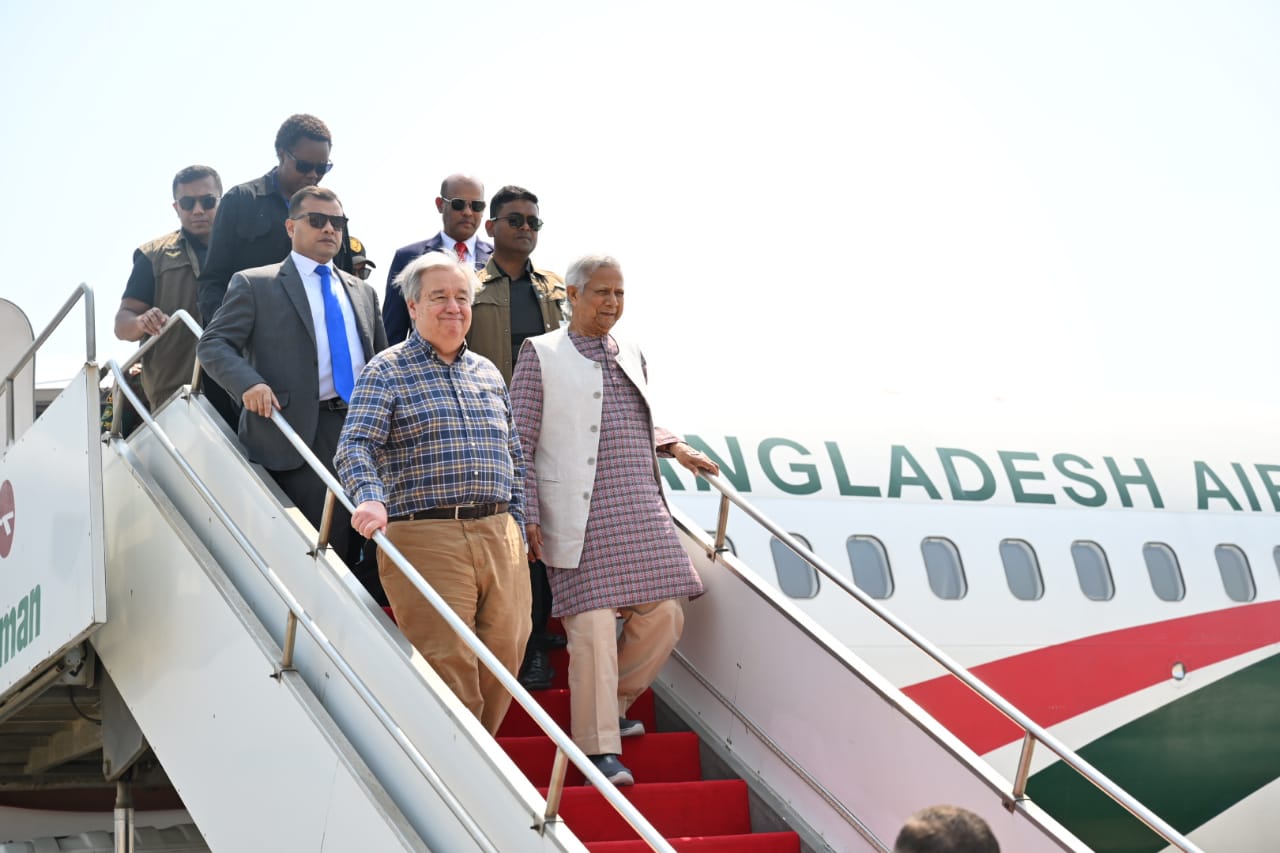By Shawkat Ali Khan;
The just-concluded visit of United Nations Secretary-General Antonio Guterres to Bangladesh has sparked discussion, with many questioning the tangible benefits it may bring to the country.
During his four-day visit, Guterres met with Chief Adviser Muhammad Yunus, visited Rohingya refugee camps to express solidarity during Ramadan and share Iftar with displaced Rohingya, and participated in roundtable discussions with members of the National Consensus Building Commission, political leaders, youth representatives, and civil society members.
Political analysts suggest that his visit, amid Bangladesh’s critical political transition, sent a strong message to the global community about the country’s urgent need for support in its democratic journey.
Additionally, his visit to the Rohingya camps in Cox’s Bazar reignited international attention on the humanitarian crisis—an issue that was at risk of being overshadowed by conflicts elsewhere.
This renewed focus could help secure aid and revive stalled efforts for the repatriation of Rohingya refugees as he himself pledged to do “everything possible to secure support for the Rohingya” as they face cuts in humanitarian aids from richer nations.
Former ambassador Humayun Kabir noted that Guterres highlighted two pressing concerns: the need to secure financial aid for Rohingya refugees in light of recent funding cuts from the United States and other nations, and the urgency of repatriation efforts.
“We have long advocated for the safe return of the Rohingya, but the situation in Myanmar’s Rakhine State has deteriorated significantly,” Kabir said.
He pointed out that around 600,000 Rohingya remain in Rakhine, where ongoing conflict between the Arakan Army and Myanmar’s military has created a famine-like situation. If this crisis is not addressed, Bangladesh could face another wave of refugee influx, he warned.
“It is difficult to say whether Guterres’ visit will directly accelerate the resolution of the Rohingya crisis. However, it has undoubtedly brought the issue back to the forefront of global attention. His statements serve as a crucial reminder that the international community has a responsibility to find a swift and sustainable solution,” he added.
Regarding Bangladesh’s political landscape, Kabir emphasized that the UN is committed to supporting the country in fostering peace, national dialogue, trust, and a smooth democratic transition.
“Additionally, the UN has expressed its willingness to assist the interim government with its reform initiatives, which is a positive step,” he said.
Guterres also underscored that the international community must support Bangladesh’s efforts to build a humane, democratic, and inclusive society.
Saiful Haque, General Secretary of the Biplabi Workers Party, expressed concern that the global community has yet to take any concrete and effective measures to ensure the safe repatriation of Rohingya refugees to Myanmar.
“Even some nations considered Bangladesh’s allies have failed to take meaningful action in this regard,” he said. However, he expressed hope that “the UN Secretary-General’s visit will help accelerate the Rohingya repatriation process this time.”


